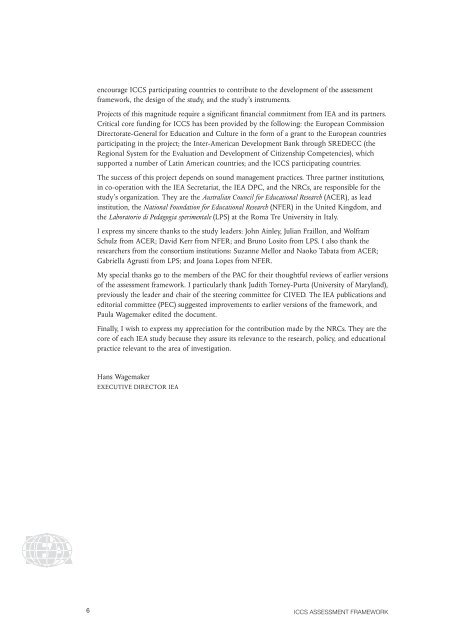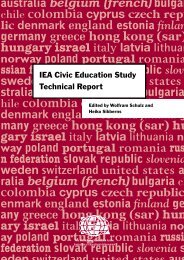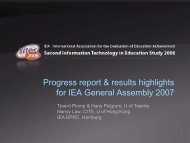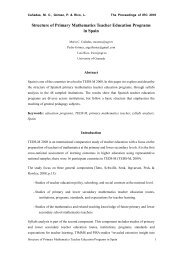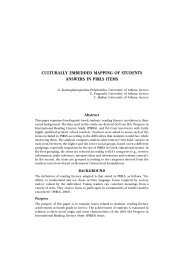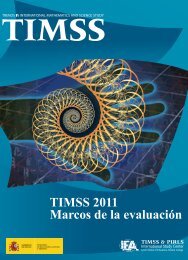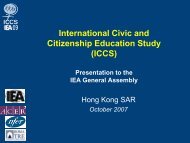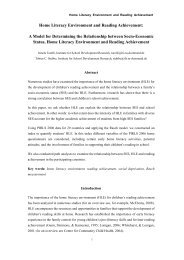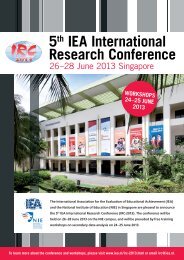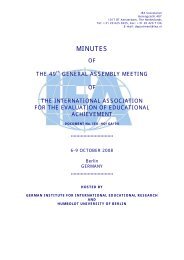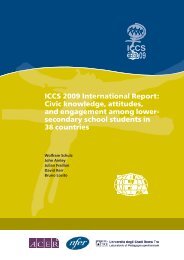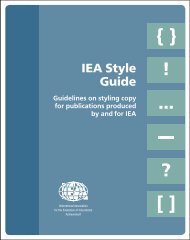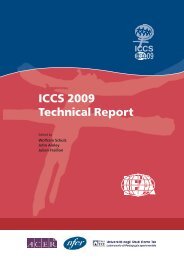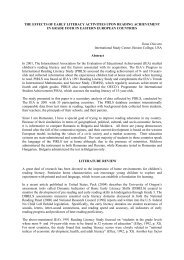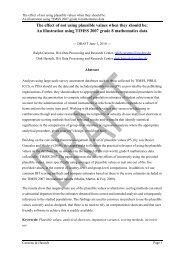International civic and citizenship education study - iccs - IEA
International civic and citizenship education study - iccs - IEA
International civic and citizenship education study - iccs - IEA
- TAGS
- civic
- citizenship
- iccs
- www.iea.nl
You also want an ePaper? Increase the reach of your titles
YUMPU automatically turns print PDFs into web optimized ePapers that Google loves.
encourage ICCS participating countries to contribute to the development of the assessment<br />
framework, the design of the <strong>study</strong>, <strong>and</strong> the <strong>study</strong>’s instruments.<br />
Projects of this magnitude require a significant financial commitment from <strong>IEA</strong> <strong>and</strong> its partners.<br />
Critical core funding for ICCS has been provided by the following: the European Commission<br />
Directorate-General for Education <strong>and</strong> Culture in the form of a grant to the European countries<br />
participating in the project; the Inter-American Development Bank through SREDECC (the<br />
Regional System for the Evaluation <strong>and</strong> Development of Citizenship Competencies), which<br />
supported a number of Latin American countries; <strong>and</strong> the ICCS participating countries.<br />
The success of this project depends on sound management practices. Three partner institutions,<br />
in co-operation with the <strong>IEA</strong> Secretariat, the <strong>IEA</strong> DPC, <strong>and</strong> the NRCs, are responsible for the<br />
<strong>study</strong>’s organization. They are the Australian Council for Educational Research (ACER), as lead<br />
institution, the National Foundation for Educational Research (NFER) in the United Kingdom, <strong>and</strong><br />
the Laboratorio di Pedagogia sperimentale (LPS) at the Roma Tre University in Italy.<br />
I express my sincere thanks to the <strong>study</strong> leaders: John Ainley, Julian Fraillon, <strong>and</strong> Wolfram<br />
Schulz from ACER; David Kerr from NFER; <strong>and</strong> Bruno Losito from LPS. I also thank the<br />
researchers from the consortium institutions: Suzanne Mellor <strong>and</strong> Naoko Tabata from ACER;<br />
Gabriella Agrusti from LPS; <strong>and</strong> Joana Lopes from NFER.<br />
My special thanks go to the members of the PAC for their thoughtful reviews of earlier versions<br />
of the assessment framework. I particularly thank Judith Torney-Purta (University of Maryl<strong>and</strong>),<br />
previously the leader <strong>and</strong> chair of the steering committee for CIVED. The <strong>IEA</strong> publications <strong>and</strong><br />
editorial committee (PEC) suggested improvements to earlier versions of the framework, <strong>and</strong><br />
Paula Wagemaker edited the document.<br />
Finally, I wish to express my appreciation for the contribution made by the NRCs. They are the<br />
core of each <strong>IEA</strong> <strong>study</strong> because they assure its relevance to the research, policy, <strong>and</strong> <strong>education</strong>al<br />
practice relevant to the area of investigation.<br />
Hans Wagemaker<br />
EXECUTIVE DIRECTOR <strong>IEA</strong><br />
6 ICCS ASSeSSment FrAmework


